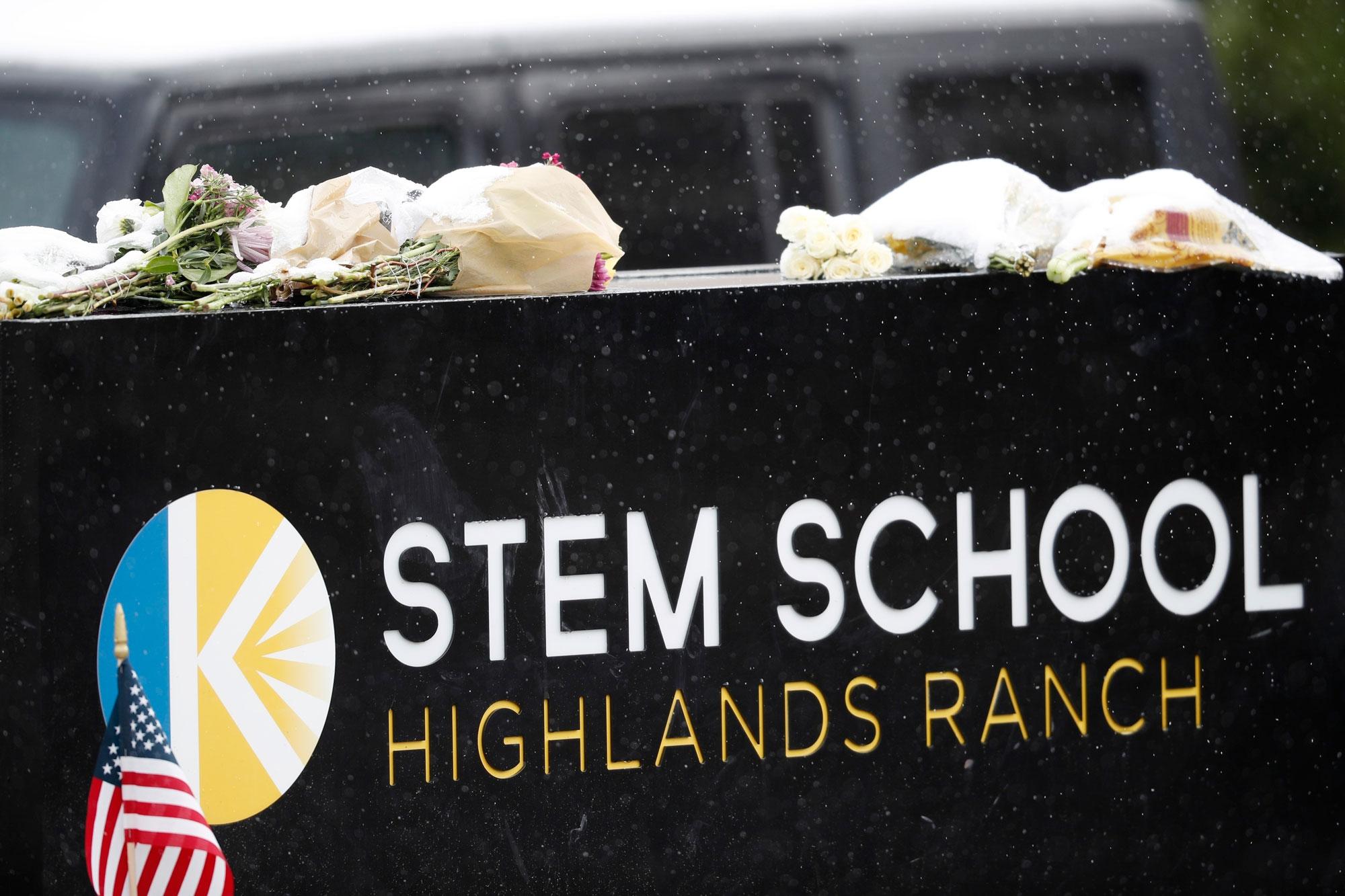
The Douglas County Board of Education has voted to grant a five-year contract to the STEM School Highlands Ranch, site of a school shooting in May.
The 7-member board passed the contract with a unanimous vote in a special session on Saturday. The school’s contract was set to expire Sunday.
The vote followed a week of intense negotiations to forge an agreement over the terms and length of the contract between the highly rated public charter school and the district. Board members expressed reservations about security and transparency in the wake of the shooting.
The independently run charter school of 1,598 K-12 students is known for interdisciplinary instruction and creative approaches to teaching science and technology.
“We never had any intention of shutting down this great school,” board member Anne-Marie Lemieux said, referring to some worries parents expressed during a June 18 board meeting.
Board chair David Ray said the district and school need to continue to communicate openly and frequently to prevent an antagonistic “us and them” situation.
“I feel it’s a new day in our relationship where we will be able to work together positively in the future,” said STEM executive director Penny Eucker.
“Getting a five-year [contract] lets everyone take a deep breath and realize we’re going to be here for the long term,” she said. “It shows our families they don’t have to worry.”
The new contract begins July 1 and ends June 30, 2024 contingent upon a review by the superintendent by June 2021.
According to the contract, the district’s superintendent will decide whether the school has provided sufficient details on what graduation competencies the school requires to ensure they’re in line with state requirements. The review will also look at whether the school has created a parent complaint and communication policy that is prominently displayed, and a strategic plan.
If the school has complied, STEM will carry on with its five-year contract. If not, the superintendent can recommend shortening the contract to three years. The board can revoke the contract at any time if the terms are broken.
The Contract Requires District Oversight
STEM must also submit to an annual performance review that includes examining performance measures, reporting of financial and governance data, performance evaluations of the school’s director and school employees, staff training, and parent, staff and student satisfaction surveys and action steps as a result of the surveys.
The contract ensures the school reports student attendance and behavior incidents and has mental health counselors at ratios set by the district. STEM will contract with local law enforcement to provide a school resource officer primarily assigned to the high school. Private security will cover the lower grades.
Board member Krista Holtzmann said the contract acknowledges the importance of supporting “not only cognitive needs but also social emotional, mental health and physical health and safety."
The contract also spells out that the district must notify the school about any complaints the district receives and that STEM must promptly investigate the complaint. In December 2018, an anonymous parent called the district to warn Douglas County school officials she feared the school could be the site of a shooting. The caller raised concerns about bullying, violence, drug use and inadequate security.
The school said it investigated and found no evidence to support the allegations.
The contract underscores the responsibilities of the school and district when it comes to serving special education students as required by state and federal law. Over an 18-month period, STEM was the subject of six complaints related to classroom accommodations and support for students with learning and emotional issues.
The contract also reinforces the requirement to make agendas and minutes of the school’s board and accountability committee meetings public, as well as display information about the school’s finances on the school’s website. Some parents had said that such information wasn’t accessible.
Lemieux applauded the contract’s protections for parents who speak out about issues in the school.
“I don’t think it’s appropriate that any parent be shut down because they are raising a concern,” she said.
The contract also stipulates the school must give Douglas County students enrollment preference. The school has a waiting list of 1,000 families. Eucker said she was proud of the school’s record of drawing students from across the Denver metro to expand diversity and equalize opportunities. She called that change “disappointing” but district officials said giving Douglas County students priority is their policy.
The New Contract Follows A Turbulent Year
In January, board members had recommended a three-year extension but the school appealed to the State Board of Education asking for five years. The appeal was dropped as both sides jointly agreed to try to reach an agreement.
Negotiations halted after the May 7 shooting that killed one student and injured several others.
In May, the district proposed extending the existing contract by one year, citing concerns about security and other unspecified “facts” that have come forward.
Parents and students rallied at a school board meeting, pleading for a five-year contract. Many parents testified that the school’s innovative focus on science and technology has been a beacon of hope for their children. They said a shorter contract brings unnecessary uncertainty to a school community trying to heal from the trauma of the shooting.
STEM directors also argued that a contract shorter than five years could cost the school $4.9 million. The school plans to issue bonds next spring to buy part of the school that it’s currently leasing and to pay for a field house for robotics competitions and athletics. STEM leaders argued a shorter contract brings a lower bond rating which means investors demand higher interest rates. That drives up costs for the school.









